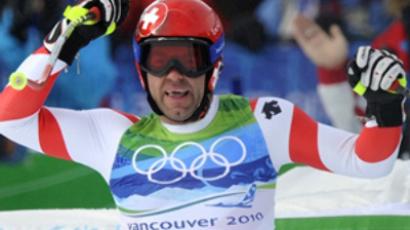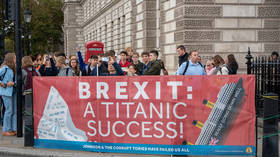Russia’s Olympic Committee head resigns
Following President Medvedev’s call for the resignation of all officials responsible for Russia’s dismal performance at the Winter Games, Leonid Tyagachev has resigned.
Leonid Tyagachev was first elected to his current post in 2001, and later re-elected in 2005.
In 1971, he was appointed Head Ski Coach of the Moscow Region and in 1976 became National Ski Coach of the Soviet team.
From 1995 to 1999, he served as the Sports and Tourism Minister of Russia. The recipient of numerous orders and medals, Tyagachev participated in both national and international ski competitions in his earlier years.
Russia won only three gold medals in Canada – the worst result in the country’s history -and that's despite a record budget allocated for the preparation to the games.
The national team took a disappointing 11th place in the overall medals table, winning three golds, five silvers and seven bronzes. Meanwhile, its once-formidable ice-hockey team was knocked out of the tournament at the quarter-final stage by Canada, the team that went on to take gold.
On Monday, President Medvedev delivered a stinging criticism of Russia ’s sporting authorities.
"Those who are responsible, or at least some of them who were responsible for this preparation, should make the courageous decision and tender their resignations. If they don't show such resolve, we will help them," the Russian president said.
Russia’s Sports, Tourism and Youth Policy Minister, Vitaly Mutko, was the first to react Medvedev’s criticism. On his return from Vancouver he said he is ready to resign if the move could change anything.
"I will resign quietly, if specifically my resignation is the issue, although I don't know whether sport will gain anything from that."
Tyagachev has proven to be the most decisive as he tendered his resignation on Wednesday.
Meanwhile, Russia’s Accounting Chamber has begun examining the recent spending of the country’s Olympic fund. The Chamber’s head, Sergey Stepashin, explained that his office’s task is to find out how efficiently the money was spent by the sports federations.
“We are not going to count Olympic medals – Vancouver Olympics did that for us,” Stepashin said on Wednesday.
With the next Winter Olympics to be held in the Black Sea resort of Sochi in 2014, the coming four years promises to be a time of drastic changes for Russian sports.













